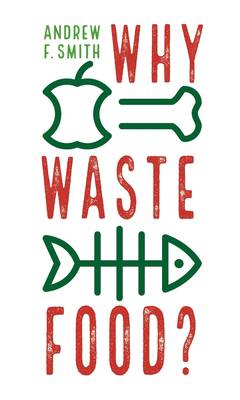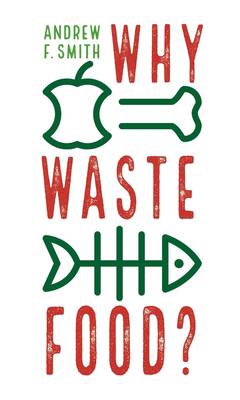
- Afhalen na 1 uur in een winkel met voorraad
- Gratis thuislevering in België vanaf € 30
- Ruim aanbod met 7 miljoen producten
- Afhalen na 1 uur in een winkel met voorraad
- Gratis thuislevering in België vanaf € 30
- Ruim aanbod met 7 miljoen producten
Zoeken
Omschrijving
About one-third of all food grown for human consumption is lost or discarded every year, despite financial, environmental, and ethical reasons not to waste food. We grow enough food to adequately feed everyone on the planet, yet hundreds of millions of people suffer from hunger, malnutrition, or food insecurity. Together, this food waste accounts for about eight percent of the world's total greenhouse gas emissions. So, if wasting food is such a patently bad idea, why do we discard so much? In Why Waste Food?, Andrew F. Smith investigates one of today's most pressing topics, examining the causes of avoidable food waste across the supply chain and highlighting the ways in which everyone can do something to tackle this global concern.
Specificaties
Betrokkenen
- Auteur(s):
- Uitgeverij:
Inhoud
- Aantal bladzijden:
- 176
- Taal:
- Engels
- Reeks:
Eigenschappen
- Productcode (EAN):
- 9781789143447
- Verschijningsdatum:
- 17/09/2020
- Uitvoering:
- Paperback
- Formaat:
- Trade paperback (VS)
- Afmetingen:
- 117 mm x 198 mm
- Gewicht:
- 113 g

Alleen bij Standaard Boekhandel
+ 32 punten op je klantenkaart van Standaard Boekhandel
Beoordelingen
We publiceren alleen reviews die voldoen aan de voorwaarden voor reviews. Bekijk onze voorwaarden voor reviews.











